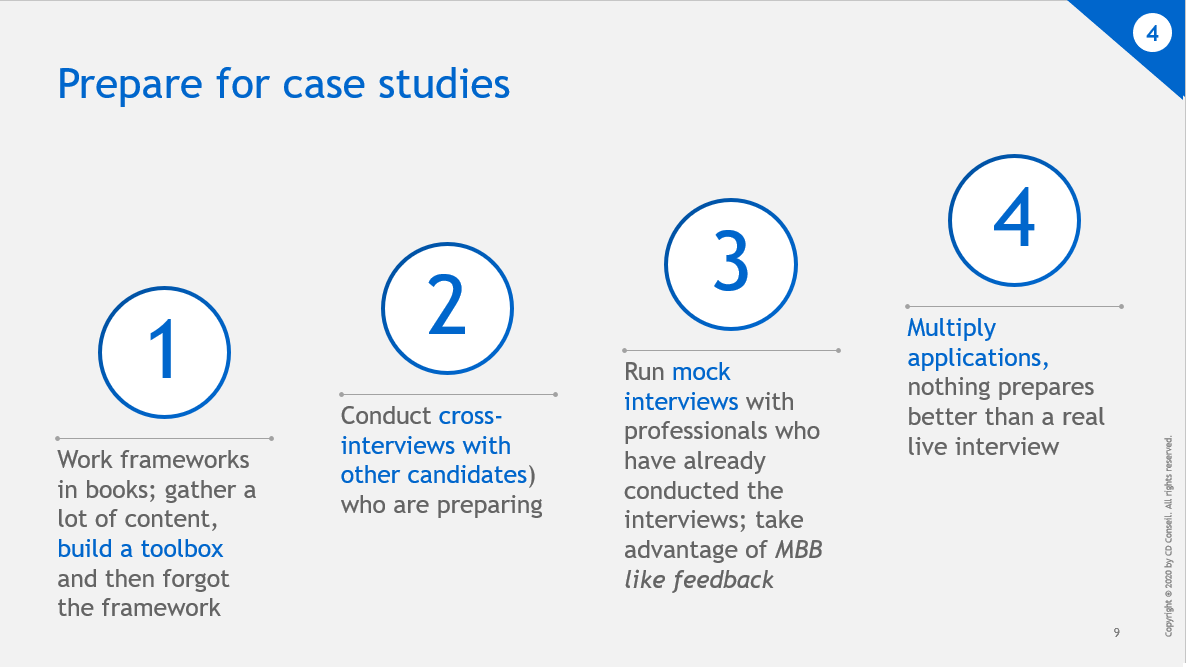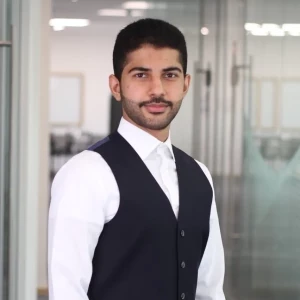Hello! I would like to start preparing for case interviews, I have already bought 3 books (Case interview secrets by Victor Cheng, Case in Point by Cosentino and Interview math by Lewis Lin) but I still feel that I don't know how to prepare in a good way because those books are or too theoretical or way too practical without a generic expaination.
So, how can I improve? May someone suggest another book or website which can give me a sufficient preparation? Thanks!





















